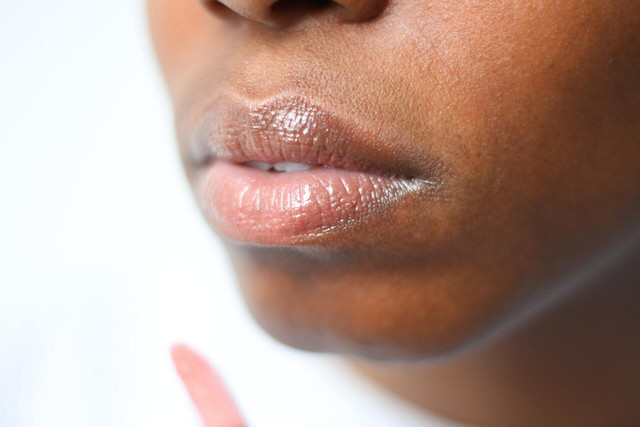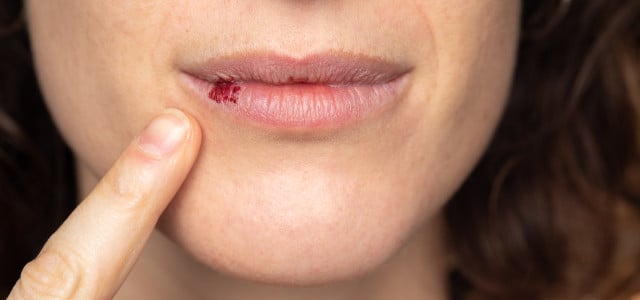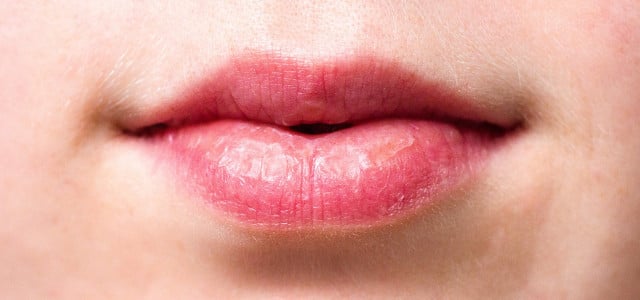Having dry and cracked lips can be frustrating and a common problem for many people, especially during temperature fluctuations. But what exactly causes chapped lips?
For many people, having chapped lips can become a frustrating occurrence. Chapped lips can often be identified through dry and cracked lips, which could be accompanied by peeling skin, itching, and mild pain. Your lips may even bleed. Some people even develop sores on their lips and in their mouths too.
Chapped lips can occur at any age. However, those who lick their lips often can become more susceptible. So, what causes chapped lips?
What Causes Chapped Lips?
The skin on our lips is naturally thinner and more sensitive when compared to the skin on the rest of our bodies. This is because our lips don’t contain any oil glands, making it harder for them to keep themselves moisturized.
If you’re prone to having dry and cracked lips, then it may become frustrating. But what causes chapped lips? Some of the most common causes of chapped lips include:
- Hot, dry, or cold weather
- Sunburn
- Frequently licking your lips
- Dehydration
Other causes can include:
- Vitamin deficiencies or malnutrition
- Medical conditions such as allergies or a thyroid disorder
However, if your lips seem severely cracked and have a lumpy texture, a dark red or pink color, and white plaques on the surface, it could be a sign that you have cheilitis. You may also develop ulcers. In this case, head to your nearest doctor or healthcare professional to help identify the cause of your chapped lips.
Treatment for Chapped Lips



(Foto: CC0 / Unsplash / Melissa Di Rocco)
There are several ways that you can prevent your lips from chapping, especially once you learn what causes chapped lips. One of the best ways to take care of your lips is to use lip balm regularly. You should apply it before you go outside or go to bed. You can also apply it when you wake up. This simple fix should help to keep your chapped lips at bay.
Ideally, you should look for a lip balm that provides sun protection and is fragrance-free. You could also use oils or ointments, such as glycerin and castor seed oil. Here are some other important ingredients to look out for:
- Ceramide and dimethicone help to moisturize
- Titanium oxide and zinc oxide for sun protection
You should avoid mineral oil and petroleum jelly, as they are considered to be unsustainable. The production of petroleum jelly involves oil extraction and refining, two potentially environmentally damaging processes.
If you find that your lip balm is irritating your lips and causing a burning, stinging or tingling sensation, you should stop using it immediately. Continuing could further irritate your lips and make the problem worse. You should also avoid using lip balms that contain fragrances or flavoring; eucalyptus; menthol; camphor and waxes. These ingredients can be aggravating to your lips. Consider making homemade lip balm using natural ingredients.
Apply lip balm or ointment as you feel necessary throughout the day. Applying lip balm before bed will help to keep your lips moisturized overnight. That said, lip balm isn’t the only ‘at home’ treatment for chapped lips. There are also plenty of other methods that you could try:
- Use a humidifier in your home
- Stay hydrated and drink plenty
- Avoid picking, licking, or biting your lips
- Avoid chewing random objects like pens, straws, or your nails
If your chapped lips begin bleeding and you find that lip ointment does not help, your doctor should be able to help you find a better treatment.
Read more:
- Homemade Sugar Lip Scrub: An Easy DIY Recipe
- Lip Gloss Recipe You Can Easily Make at Home, All Natural
- 5 Comedogenic Ingredients to Keep Off Your Skin
Important Information regarding Health-related Topics.
** Links to retailers marked with ** or underlined orange are partially partner links: If you buy here, you actively support Utopia.org, because we will receive a small part of the sales proceeds. More info.Do you like this post?








